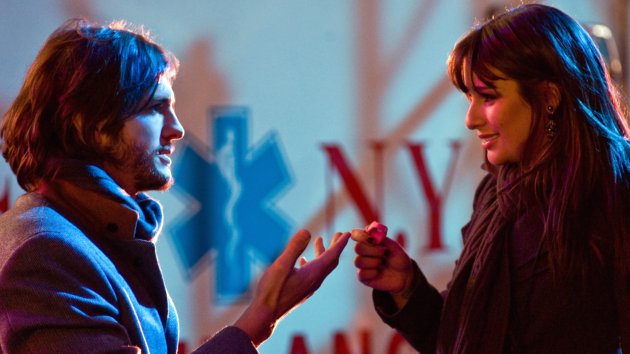Culture
An uneventful “New Year’s Eve”

New Year's Eve
dir. Garry Marshall
Release Date: Dec 09, 11
- 1
- 2
- 3
- 4
- 5
- 6
- 7
- 8
- 9
- 10
New Year’s Eve is so deafeningly bad that it lends credibility to anti-holiday cynics the world over. Even they, however, are torn down by Garry Marshall’s deeply misguided, star-studded effort, since their proxy in the movie is a bearded Ashton Kutcher, as a comic book artist who just needs a cloyingly perky Lea Michele to bat eyes at him in an elevator until he too sees the beauty of the holiday. Eve is possibly the worst of Marshall’s latter day works, a canon that includes Valentine’s Day and Georgia Rule. Picture Love Actually without any of the charm, laughs or genuine holiday spirit, and you have the idea.
Much like Actually, New Year’s Eve includes a colossal list of performers in partially connected stories. Unlike it, few of the stories actually come together in any way beyond their all happening in New York on the last night of the year. Marshall is clearly swinging for some kind of grandiose gesture about love and hope, but every minute of his film feels so forced and insincere that it’s hard to take it as any more than an attempt to sell trite, miniature love stories and Nivea skin cream in tandem. (Seriously, I’m not usually one to get on a cross over product placement in movies, but the Times Square sequences near the end of the film are just vulgar.)
Of the many who embarass themselves for a paycheck, Zac Efron manages to emerge with the least damage, as a cocky bike messenger who takes Michelle Pfeiffer on a one-day tour to finish all her 2011 resolutions before midnight. The scenes are forced, as is the eventual wall between them and the inevitable reunion, but they’re charming enough together to walk away with their dignity intact. Jon Bon Jovi, curiously, is also charming as a riff on himself (not nearly self-aware enough, though; that could’ve been fun), and gets special credit for making Katherine Heigl come off less shrill than is her custom these days.
Compliments aside, the rest of the performances range from bad to worse, buoyed by what may be the worst screenplay of 2011. From Seth Meyers and Jessica Biel forcibly trying to deliver their child in order to win money in a “New Year’s Baby” contest, to Sarah Jessica Parker creepily hunting her daughter through the city simply because she’s lonely and has nobody else to stay with, there’s nothing sweet about New Year’s Eve. When harmlessly banal is your high-water mark, something has gone awry.
The biggest misstep New Year’s Eve takes, though, is when it swings for heartwrenching sincerity that isn’t earned to bring some gravitas to the comedy that doesn’t exist. A story involving one character dressing up for the holiday only to have an online date with her soldier husband will cause even the most earnest eyes to roll. Then, there’s Robert DeNiro keeping pace with Al Pacino on the great race to career irrelevance, doing his best impression of Jason Robards in Magnolia as a dying man who simply wishes to see the ball drop at midnight. It’s not just that New Year’s Eve is a bad movie, although it truly is, but that it labors under the delusion that it has a soul. In reality, this has all the soul of a damp piece of confetti being scraped off a street.